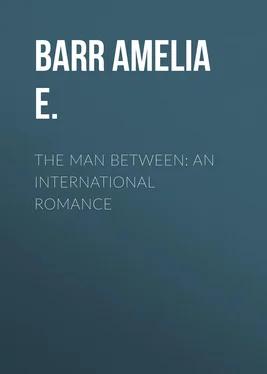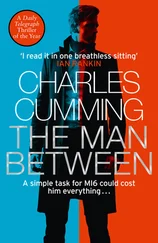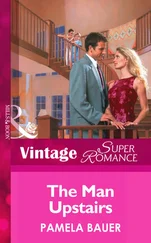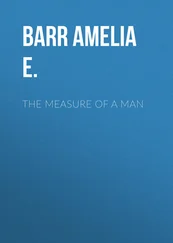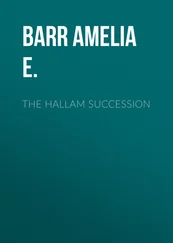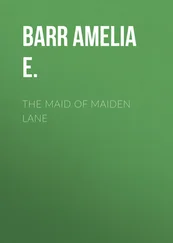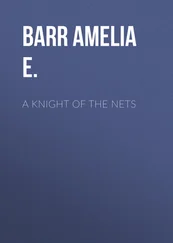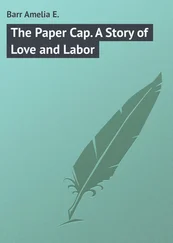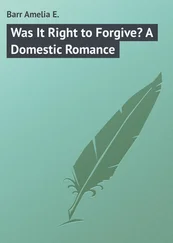Amelia Barr - The Man Between - An International Romance
Здесь есть возможность читать онлайн «Amelia Barr - The Man Between - An International Romance» — ознакомительный отрывок электронной книги совершенно бесплатно, а после прочтения отрывка купить полную версию. В некоторых случаях можно слушать аудио, скачать через торрент в формате fb2 и присутствует краткое содержание. Жанр: foreign_prose, foreign_antique, на английском языке. Описание произведения, (предисловие) а так же отзывы посетителей доступны на портале библиотеки ЛибКат.
- Название:The Man Between: An International Romance
- Автор:
- Жанр:
- Год:неизвестен
- ISBN:нет данных
- Рейтинг книги:4 / 5. Голосов: 1
-
Избранное:Добавить в избранное
- Отзывы:
-
Ваша оценка:
- 80
- 1
- 2
- 3
- 4
- 5
The Man Between: An International Romance: краткое содержание, описание и аннотация
Предлагаем к чтению аннотацию, описание, краткое содержание или предисловие (зависит от того, что написал сам автор книги «The Man Between: An International Romance»). Если вы не нашли необходимую информацию о книге — напишите в комментариях, мы постараемся отыскать её.
The Man Between: An International Romance — читать онлайн ознакомительный отрывок
Ниже представлен текст книги, разбитый по страницам. Система сохранения места последней прочитанной страницы, позволяет с удобством читать онлайн бесплатно книгу «The Man Between: An International Romance», без необходимости каждый раз заново искать на чём Вы остановились. Поставьте закладку, и сможете в любой момент перейти на страницу, на которой закончили чтение.
Интервал:
Закладка:
“You have said that before, and I am sure you are wrong. A great many of them are married and are in love with their own husbands; and the kind of girls who go to St. Jude’s are not the kind who marry clergymen. Mr. Stanhope’s whole income would hardly buy their gloves and parasols.”
“I don’t think you are pleased that I am going to marry. You must not be jealous of Basil. I shall love you just the same.”
“Under no conditions, Dora, would I allow jealousy to trouble my life. All the same, you will not love me after your marriage as you have loved me in the past. I shall not expect it.”
Passionate denials of this assertion, reminiscences of the past, assurances for the future followed, and Ethel accepted them without dispute and without faith. But she understood that the mere circumstance of her engagement was all that Dora could manage at present; and that the details of the marriage merged themselves constantly in the wonderful fact that Basil Stanhope loved her, and that some time, not far off, she was going to be his wife. This joyful certainty filled her heart and her comprehension, and she had a natural reluctance to subject it to the details of the social and religious ceremonies necessary, Such things permitted others to participate in her joy, and she resented the idea. For a time she wished to keep her lover in a world where no other thought might trouble the thought of Dora.
Ethel understood her friend’s mood, and was rather relieved when her carriage arrived. She felt that her presence was preventing Dora’s absolute surrender of herself to thoughts of her lover, and all the way home she marveled at the girl’s infatuation, and wondered if it would be possible for her to fall into such a dotage of love for any man. She answered this query positively—“No, if I should lose my heart, I shall not therefore lose my head”—and then, before she could finish assuring herself of her determinate wisdom, some mocking lines she had often quoted to love-sick girls went laughing through her memory—
“O Woman! Woman! O our frail, frail sex!
No wonder tragedies are made from us!
Always the same—nothing but loves and cradles.”
She found Ruth Bayard dressed for dinner, but her father was not present. That was satisfactory, for he was always a little impatient when the talk was of lovers and weddings; and just then this topic was uppermost in Ethel’s mind.
“Ruth,” she said, “Dora is engaged,” and then in a few sentences she told the little romance Dora had lived for the past year, and its happy culmination. “Setting money aside, I think he will make a very suitable husband. What do you think, Ruth?”
“From what I know of Mr. Stanhope, I should doubt it. I am sure he will put his duties before every earthly thing, and I am sure Dora will object to that. Then I wonder if Dora is made on a pattern large enough to be the moneyed partner in matrimony. I should think Mr. Stanhope was a proud man.”
“Dora says he is connected with the English noble family of Stanhopes.”
“We shall certainly have all the connections of the English nobility in America very soon now—but why does he marry Dora? Is it her money?”
“I think not. I have heard from various sources some fine things of Basil Stanhope. There are many richer girls than Dora in St. Jude’s. I dare say some one of them would have married him.”
“You are mistaken. Do you think Margery Starey, Jane Lewes, or any of the girls of their order would marry a man with a few thousands a year? And to marry for love is beyond the frontiers of such women’s intelligence. In their creed a husband is a banker, not a man to be loved and cared for. You know how much of a banker Mr. Stanhope could be.”
“Bryce Denning is very angry at what he evidently considers his sister’s mesalliance.”
“If Mr. Stanhope is connected with the English Stanhopes, the mesalliance must be laid to his charge.”
“Indeed the Dennings have some pretenses to good lineage, and Bryce spoke of his sister ‘disgracing his family by her contemplated marriage.’”
“His family! My dear Ethel, his grandfather was a manufacturer of tin tacks. And now that we have got as far away as the Denning’s grandfather, suppose we drop the subject.”
“Content; I am a little tired of the clan Denning—that is their original name Dora says. I will go now and dress for dinner.”
Then Ruth rose and looked inquisitively around the room. It was as she wished it to be—the very expression of elegant comfort—warm and light, and holding the scent of roses: a place of deep, large chairs with no odds and ends to worry about, a room to lounge and chat in, and where the last touch of perfect home freedom was given by a big mastiff who, having heard the door-bell ring, strolled in to see who had called.
CHAPTER II
DURING dinner both Ruth and Ethel were aware of some sub-interest in the Judge’s manner; his absent-mindedness was unusual, and once Ruth saw a faint smile that nothing evident could have induced. Unconsciously also he set a tone of constraint and hurry; the meal was not loitered over, the conversation flagged, and all rose from the table with a sense of relief; perhaps, indeed, with a feeling of expectation.
They entered the parlor together, and the mastiff rose to meet them, asking permission to remain with the little coaxing push of his nose which brought the ready answer:
“Certainly, Sultan. Make yourself comfortable.”
Then they grouped themselves round the fire, and the Judge lit his cigar and looked at Ethel in a way that instantly brought curiosity to the question:
“You have a secret, father,” she said. “Is it about grandmother?”
“It is news rather than a secret, Ethel. And grandmother has a good deal to do with it, for it is about her family—the Mostyns.”
“Oh!”
The tone of Ethel’s “Oh!” was not encouraging, and Ruth’s look of interest held in abeyance was just as chilling. But something like this attitude had been expected, and Judge Rawdon was not discouraged by it; he knew that youth is capable of great and sudden changes, and that its ability to find reasonable motives for them is unlimited, so he calmly continued:
“You are aware that your grandmother’s name before marriage was Rachel Mostyn?”
“I have seen it a thousand times at the bottom of her sampler, father, the one that is framed and hanging in her morning room—Rachel Mostyn, November, Anno Domini, 1827.”
“Very well. She married George Rawdon, and they came to New York in 1834. They had a pretty house on the Bowling Green and lived very happily there. I was born in 1850, the youngest of their children. You know that I sign my name Edward M. Rawdon; it is really Edward Mostyn Rawdon.”
He paused, and Ruth said, “I suppose Mrs. Rawdon has had some news from her old home?”
“She had a letter last night, and I shall probably receive one to-morrow. Frederick Mostyn, her grand-nephew, is coming to New York, and Squire Rawdon, of Rawdon Manor, writes to recommend the young man to our hospitality.”
“But you surely do not intend to invite him here, Edward. I think that would not do.”
“He is going to the Holland House. But he is our kinsman, and therefore we must be hospitable.”
“I have been trying to count the kinship. It is out of my reckoning,” said Ethel. “I hope at least he is nice and presentable.”
“The Mostyns are a handsome family. Look at your grandmother. And Squire Rawdon speaks very well of Mr. Mostyn. He has taken the right side in politics, and is likely to make his mark. They were always great sportsmen, and I dare say this representative of the family is a good-looking fellow, well-mannered, and perfectly dressed.”
Читать дальшеИнтервал:
Закладка:
Похожие книги на «The Man Between: An International Romance»
Представляем Вашему вниманию похожие книги на «The Man Between: An International Romance» списком для выбора. Мы отобрали схожую по названию и смыслу литературу в надежде предоставить читателям больше вариантов отыскать новые, интересные, ещё непрочитанные произведения.
Обсуждение, отзывы о книге «The Man Between: An International Romance» и просто собственные мнения читателей. Оставьте ваши комментарии, напишите, что Вы думаете о произведении, его смысле или главных героях. Укажите что конкретно понравилось, а что нет, и почему Вы так считаете.
